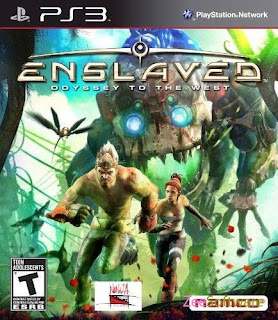Superman is one of my favorite comic book characters of all time, second only to Batman. Over the years there have been retcons and different iterations of his character, from the official canon to stuff like Earth-2 and the fantastic All-Star treatment of his mythos. Now, with the announcement of the DC Universe reboot I knew there would most likely be changes to certain origin stories. Seeing as how Superman has had the biggest change in costume as well as being the hardest character to treat in DC’s line-up, especially nowadays, I wasn’t surprised to hear that Superman would be getting the most significant revamp in his origin. Skepticism of course hit me, as Clark Kent’s origins has been done fine enough already in the past, but I had faith when hearing that Grant Morrison would be handling the new run of Action Comics, being that I absolutely adore All-Star Superman. So a good friend of mine let me borrow his issues of Action Comics, and despite the controversy surrounding this new continuity, I decided to jump in and give it my own take.
Well... to get it out of the way... Issue 1 left a very bad taste in my mouth. It was interesting to see that this new Action Comics line was harking back to Superman’s earliest days in comic history, and that would be fine in some Elseworld continuity but considering this is now official canon, the fact that Superman is uttering lines like “I’m your worst nightmare” is a problem. I know that Superman is in his early days in these issues but if I replaced every drawing of Superman with Batman it’d feel a lot more natural. I can understand changing the origin for the sake of updating for modern readers and what-not but this is painting a bad image of what Superman is all about, young and brash or not, Clark Kent was not raised by Jonathan and Martha Kent to be a pompous, arrogant vigilante. Clark’s humble nature comes from that fact that his parents raised him on a farm, helped him build character by guiding him through his childhood and adolescence.
But wait, here comes another offense of this new universe, at least for Not-So Superman, Jonathan and Martha Kent are both deceased and Clark is left to figure out what to become on his own. I hate to jump on the bandwagon but I have to agree with the complaints most have had towards something like this, I know Batman is (quite understandably and obviously) DC’s most marketable and well-received character from the main line-up, but you don’t need to make The Man of Steel more like The Dark Knight in order for new readers to be invested. Making both his parents deceased and giving him his facepalm-inducing tough guy dialogue is a slap in the face to what Superman is, he’s not Batman. I feel that Batman and Superman as a duo is one of the best two-man teams out there because of their opposite natures and methods, they learn and take example from one another, and institute a balance, bouncing off each other flawlessly.
Bruce lost both his parents and had to find his own way, whereas Clark’s parents were always there, he even still had his mother when Jonathan passed away (depending on which iteration). The influence of the Kent’s on Clark’s growth is an essential dynamic to the mythos of Superman as these pure-hearted people adopted this alien and instilled with him moral values. Writers’ understanding of this dynamic has been evident in many adaptations, including the Donnerverse live-action films, the DC Animated Universe, and Smallville, especially Smallville. I understand that that general readers think of Superman as a boy scout but... well... he’s supposed to be. Kal-El is more human than any human on Earth, his name implies a superior version of man, because we look up to him as a messiah and an example of kindness and determination in a world of corruption and distrust. We lead by the example he has set to us as man so we in turn can become supermen, not for the power, not for the recognition, but for the character. That is the point of Superman. He's not the champion of the poor and downtrodden, he's the champion of everyone. He's not biased.
Granted, some of the reboot’s changes have worked for the better. I feel that the new costume’s design as well as it being Kryptonian armor now have worked to the reboot’s advantage, and actually add some logical reason for him to wear the suit. Also, having him never be Superboy helps Conner Kent’s inclusion in the Superman Family a little less confusing, at least to new fans. As it stands, I hope the issues start to pick up and give much-needed development as time goes on, but I honestly don’t care to read anymore of this take. It’s just not Superman to me. Apparently, it’s not for a lot of long-time fans, including Linkara, and I’m inclined to agree.











.jpg)



























